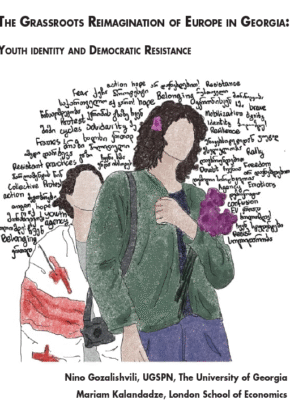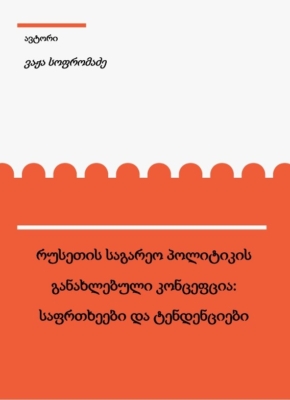
 The Grassroots Reimagination of Europe in Georgia: Youth ...
The Grassroots Reimagination of Europe in Georgia: Youth ...
Youth resistance in Georgia has emerged as a key actor within the landscape of non-parliamentary opposition. This paper examines how university students mobilised during the 2024 protests, not simply to contest a piece of legislation, but to engage in broader acts of political redefinition and identity reclamation. Drawing on twenty-eight ethnographic diaries, the paper investigates how emotional, symbolic, and generational practices are deployed by young activists to articulate belonging, citizenship, and resistance outside formal political institutions.
Rather than acting in coordination with the parliamentary opposition, students build their own oppositional identity through emotionally charged practices such as “identity marches,” protest rituals, and symbolic appropriation of public space. These actions reveal how emotions—particularly anger, hope, fear, pride, and confusion—function as more than expressive tools: they structure participation, forge horizontal solidarities, and sustain collective motivation over time.
The analysis highlights how students reinterpret national and European belonging as affective and civic projects, positioning themselves in opposition to both Russian influence and domestic political elites. Their actions suggest a transformation of Europeanisation from a top-down institutional narrative into a lived, grassroots civic identity. This case contributes to broader discussions on how extra-institutional opposition actors generate political agency in post-communist hybrid regimes.
 რუსეთის საგარეო პოლიტიკის განახლებული კონცეფცია: საფრთხეები და ტენდენციები
რუსეთის საგარეო პოლიტიკის განახლებული კონცეფცია: საფრთხეები და ტენდენციები
წარმოდგენილი სტატია აანალიზებს რუსეთის ფედერაციის საგარეო პოლიტიკის განახლებულ კონცეფციას და განიხილავს კრემლის მიერ გაცხადებულ მიზნებს და ამოცანებს საგარეო პოლიტიკურ განზომილებაში. განახლებული კონცეფციის მიხედვით კრემლს აქვს ამბიცია წამყვანი როლი ითამაშოს ახალი საერთაშორისო სისტემის ჩამოყალიბების პროცესში, სადაც გარანტირებულად დაცული იქნება რუსეთის სახელმწიფო ინტერესები.
დასავლური სახელმწიფოების მხრიდან უპრეცედენტო საერთაშორისო იზოლაციის ფონზე რუსეთის ფედერაცია ცდილობს გეოპოლიტიკური და გეოეკონომიკური ზიანის მინიმალიზაციას. საგარეო პოლიტიკური პოზიციონირების თვალსაზრისით კრემლი ცდილობს ანტიდასავლური და ანტიკოლონიალისტური დღის წესრიგის ჩამოყალიბებას და მის გაძლიერებას პოტენციურად მოწყვლად აზიის და აფრიკის რეგიონების სახელმწიფოებზე. გარდა ამისა, განახლებულ კონცეფციის მიხედვით, რუსეთი მზადაა გამოიყენოს შეიარაღებული ძალები საკუთარი მოკავშირეების და თანამოქალაქეების დასაცავად მთელი მსოფლიოს მასშტაბით.
იდეოლოგიური თვალსაზრისით დოკუმენტის განახლებული ვერსია სრულად ეფუძნება ე.წ. „რუსული სამყაროს“ კონცეფციას, რომლის მიხედვითაც რუსეთი საბოლოო ჯამში უნდა ჩამოყალიბდეს როგორც სახელმწიფო-ცივილიზაცია, რომელიც ხალხს რუსული იდენტობის ირგვლივ აერთიანებს.